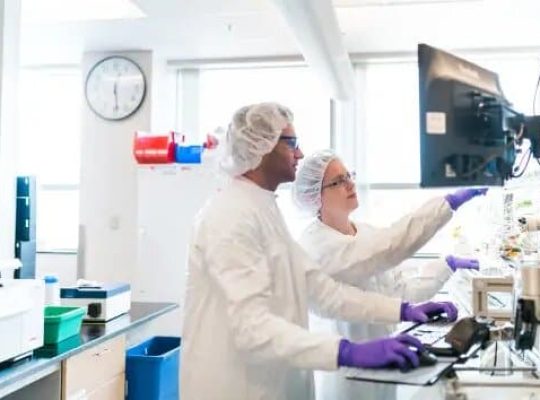Digitalization is the process of using digitized information to work more simply and efficiently. From data storage, analysis and optimization to software and machine integration and automation, a shifting to digitalization can benefit bio-based companies.
Multiple lab notebooks, scattered data, and obsolete manual approaches to creating and implementing workflows leads to loss of data, delays in project timelines, and increased cost of research and development.
Recent advances in biotechnology, especially in biomanufacturing, vaccines and sustainable food and agriculture, have made efficient biological R&D even more of an imperative. A very bright spotlight has been placed on the development side of the R&D enterprise where, as we have seen with vaccine and therapeutics development in response to Covid-19, it takes brute force in the form of enormous amounts of money and effort to push through a development process at a much faster pace.
There is no law of physics that keeps us from going faster while not becoming outrageously more expensive. In large part the imbalance between need and speed is due to the inhibition of information flow, the entire process needs to be much more integrated, automated and flexible.
This has led researchers and companies to shift towards the digitalization of biotechnology i.e. build or adopt new tools that facilitate the entire R&D processes. For example, organizing design, execution, data, and interpretation into more seamless integrated data driven workflows that make what are currently perceived as roadblocks and barriers much more easily surmountable. Safety and quality, intellectual property, audit trails are all important and more easily managed with high quality tools and software.
What are some of the digitalization services that the Biotech industry is adopting?
- Systems Integration: Finding a platform that can integrate with your lab equipment and connect different internal and external systems to improve efficiency.
- Process Automation: Leveraging digital tools, automation robots to replace manual processes.
- Application Development: Development of configurable platforms that serve core functions within an organization e.g, liquid handling, sample management, protein expression optimization, fermentation management, etc.
- Cloud and DevOps: Migrating data and applications to cloud for better storage, security and access to information, allowing you to remotely update information.
What considerations do you have to make before building or adopting a new digital platform?
- Business Alignment: How does the particular platform align with your business’ needs.
- Strategic Roadmap: Where do you want your organization to be, both short-term and long-term, and how will the platform help you reach the goals.
- Technology Architecture: It’s important to understand the technology you’re going to adopt, how it can integrate with the technology you’re currently using. Can it orchestrate the flow of information through your various workflows? Can it capture data that lends itself to useful analytics?
- Support Service: Your relationship with the platform doesn’t end with its purchase. Responsive service and support is critical to understanding and managing new platforms, quickly fixing defects and providing a clear path you can use to request and add new features.
Wondering how TeselaGen can help in the digitalization of your lab? We at, TeselaGen Biotechnology, have developed the first artificial intelligence-enabled operating system for biotechnology, enabling the development and commercialization of high-performance bioproducts – from pharmaceuticals to food to fabrics – faster and easier than ever. Our software provides you a pathway to digitalization. It connects biologists, lab technicians, and bioinformaticians so that they can collaboratively design and build experiments, organize and standardize data and then test and continually learn from the data.
Take a look at some of the features our product offers for biotech digitalization in these brochures:
Find more brochures about our product features and services here.
You can also read how TeselaGen is helping drive Australia’s bioeconomy through a partnership with CSIRO in this case study.
